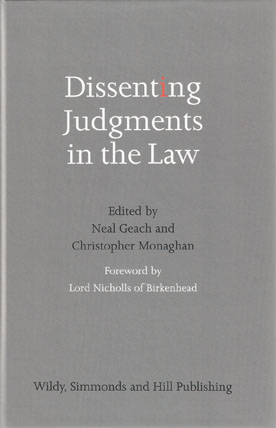
In Dissenting Judgments in the Law a team of expert contributors reassess nineteen landmark cases from different areas of the law, each of which had the potential for the law to have developed in a markedly different direction.
The cases have been selected on account of their continued relevance to the law today or the controversial nature of the majority’s decision. A key feature of each case was a dissenting opinion from a judge who thought that the law should develop in a different direction.
The aim of the contributors is to re-evaluate important cases, such as:-
The judicial reasoning in each case is explored in depth and is contrasted with differing approaches in other jurisdictions. Where relevant, a comparative analysis is employed in order to show how the law, by not following the dissenting opinion, has developed out of step with other common law jurisdictions.
Each contributor then sets out what impact the dissenting judgment might have had on the law if it had decided the case and assess where the law in that particular field would be today.
"A highly stimulating book" from the Foreword by Lord Nicholls of Birkenhead
"A highly thought-provoking book which will reach out to the law student, the practitioner and the jurisprudent for the excellence of the controversies set out" Phillip Taylor, Richmond Green Chambers